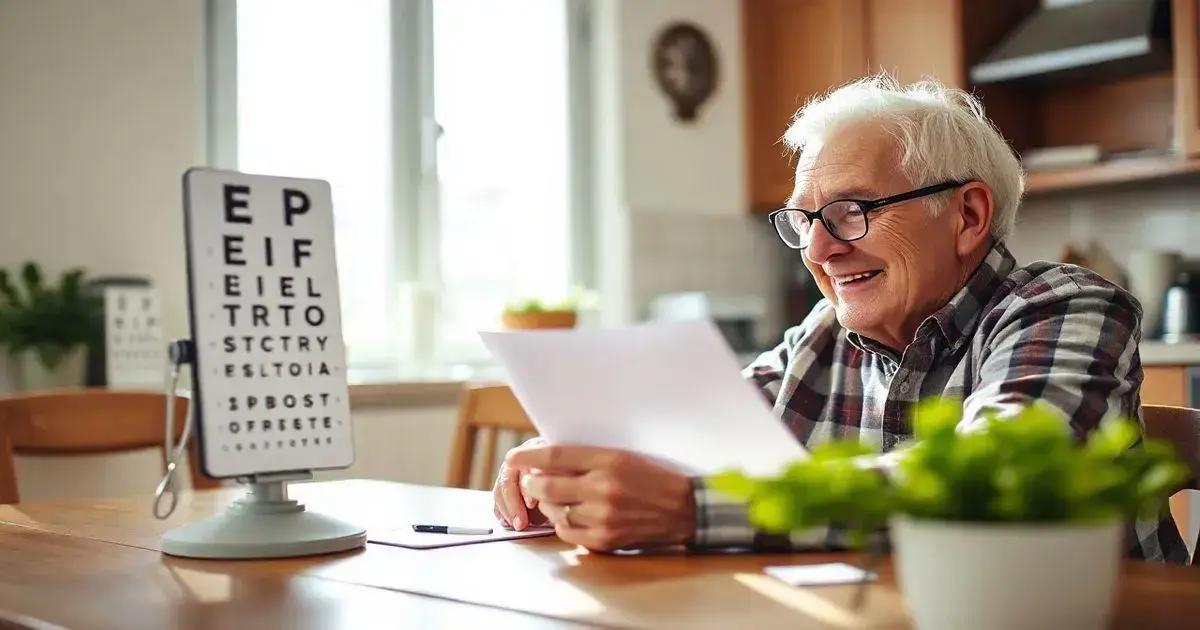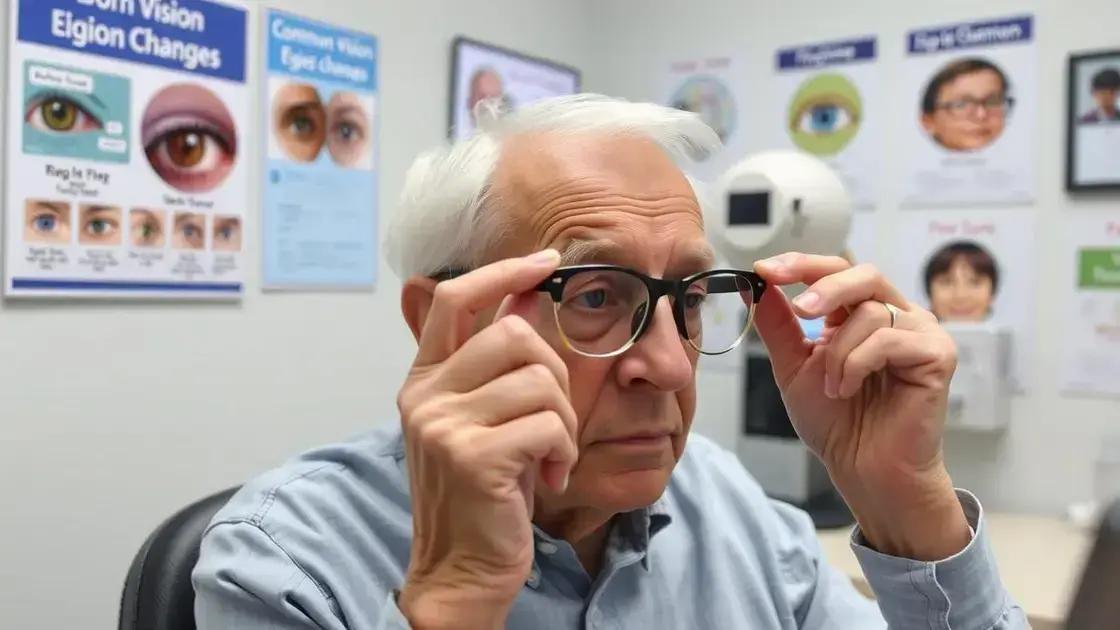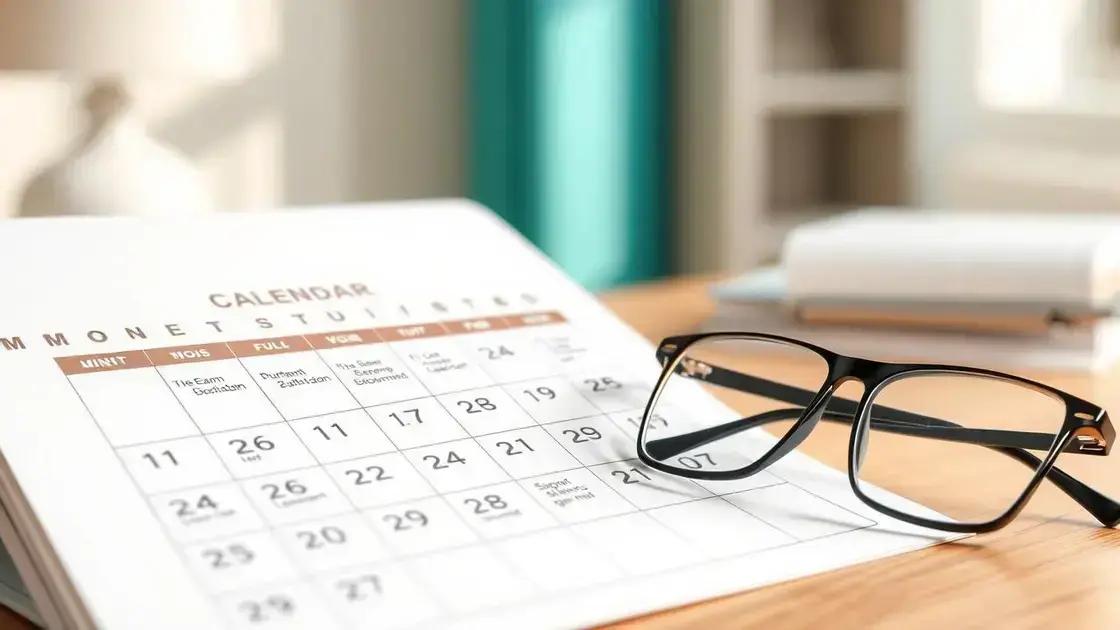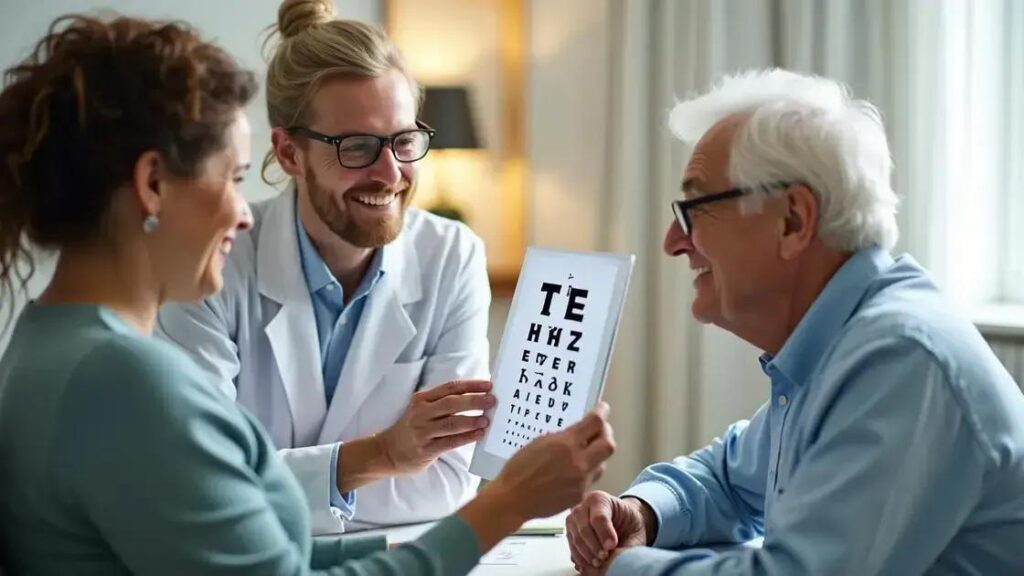Annual eye exams are crucial for seniors as they help detect common vision changes like cataracts and glaucoma early on, ensuring proper treatment. Regular check-ups, ideally once a year, alongside adopting healthy habits such as a balanced diet, quitting smoking, and protecting eyes from UV rays, can significantly enhance eye health and quality of life as you age.
As we age, our vision can change significantly, making regular eye exams vital for maintaining eye health. The Importance of Annual Eye Exams for Aging Vision allows us to identify potential issues early and ensure we receive the necessary care. With numerous common vision changes affecting seniors, understanding when to seek professional help is crucial. This article will delve into why eye exams are essential for older adults, the changes they might experience, and effective strategies to protect their eyesight.
Why Eye Exams are Crucial for Seniors

Eye exams are essential for seniors because they help detect vision problems that can affect daily life. As we age, our eyes undergo changes that may not be immediately obvious. Regular check-ups with an eye doctor can uncover conditions like glaucoma, cataracts, or macular degeneration before they cause serious issues.
Understanding Vision Changes
Many seniors experience a decline in vision quality due to age-related changes. Difficulty reading small print, seeing in low-light conditions, or noticing halos around lights are common issues. By having annual eye exams, seniors can address these problems early and take steps to improve their sight.
Preventing Serious Conditions
With regular examinations, eye care professionals can monitor eye health, ensuring that any eye diseases are caught at the earliest stage. Early intervention can often lead to better treatment outcomes, preserving eyesight and maintaining quality of life.
Enhancing Overall Health
Eye exams also serve as an opportunity to assess overall health. During these appointments, doctors can detect signs of systemic conditions such as diabetes or high blood pressure, which can manifest in the eyes. Identifying these issues early can lead to timely treatment and improve overall well-being.
Moreover, maintaining good vision can significantly enhance the quality of life for seniors. Being able to read, drive, watch television, and engage with family and friends contributes to emotional and mental health, making annual eye exams an important part of aging gracefully.
Common Vision Changes in Aging

As people age, they can experience various vision changes. Some common changes include:
Presbyopia
This condition affects almost everyone as they reach their 40s. It makes it harder to focus on close objects, like books or phones. Many people find they need reading glasses to help with this issue.
Cataracts
Cataracts develop when the lens of the eye becomes cloudy, leading to blurry vision. This condition is common among older adults, and many may not realize they have cataracts until their vision changes significantly.
Glaucoma
Glaucoma is a group of eye diseases that damage the optic nerve, often due to high eye pressure. It can result in vision loss if not treated properly. Regular eye exams can help detect glaucoma early.
Macular Degeneration
This age-related condition affects the central part of the retina, causing blurred or reduced central vision. It can make tasks like reading or recognizing faces difficult.
Moreover, seniors may find their eyes become drier or more sensitive. Noting these changes is essential, as they can impact daily activities. By attending annual eye exams, seniors can identify these problems early and adjust their treatment accordingly.
How Often Should You Get Eye Exams?

Regular eye exams are crucial for maintaining good vision, especially as we age. For most elderly individuals, it is recommended to have an eye exam at least once a year.
When to Schedule Your Exams
Seniors who have existing eye conditions or are at higher risk for eye diseases should consult with their eye doctor about more frequent visits. Those with conditions like diabetes or a family history of eye diseases may need to schedule check-ups every six months.
Signs You Should See an Eye Doctor Sooner
If you notice any changes in your vision, such as blurriness, trouble seeing at night, or increased sensitivity to light, it’s important to contact your eye doctor as soon as possible. Early intervention can prevent more serious issues.
Importance of Regularity
Maintaining a consistent schedule for eye exams helps monitor changes over time. Your eye care professional can track your eye health effectively, ensuring timely treatments for any issues that arise.
In summary, while annual exams are generally suitable for most seniors, listening to your body and promptly addressing vision changes can lead to better long-term eye health.
Preventative Measures for Healthy Eyes

Taking steps to maintain healthy eyes is essential, especially as we age. Here are several preventative measures seniors can adopt:
Maintain a Balanced Diet
Eating a variety of fruits and vegetables can significantly benefit eye health. Foods rich in vitamins C and E, omega-3 fatty acids, and zinc, such as leafy greens, nuts, and fish, can help prevent age-related eye conditions.
Quit Smoking
Smoking is harmful to your overall health and is also linked to an increased risk of cataracts and macular degeneration. Quitting smoking can significantly lessen these risks and improve your eye health.
Protect Your Eyes from UV Light
Wearing sunglasses that block 100% of UVA and UVB rays can protect your eyes from sunlight damage. Look for sunglasses that provide adequate coverage and come with a UV protection label.
Practice Good Screen Habits
With increased time spent on screens, it’s crucial to follow the 20-20-20 rule. Every 20 minutes, look at something 20 feet away for 20 seconds. This practice can help reduce eye strain and fatigue.
Stay Active and Manage Health Conditions
Regular exercise improves circulation, which in turn benefits overall eye health. Additionally, managing diabetes and hypertension through lifestyle changes or medication can help protect your vision.
By integrating these habits into daily life, seniors can play an active role in preserving their eye health and well-being.
In Summary: Protecting Your Vision Matters
Annual eye exams are essential for maintaining healthy vision as we age. They allow for the early detection of common vision changes such as cataracts, glaucoma, and macular degeneration.
Regular check-ups ensure timely treatment and help manage existing conditions effectively. Additionally, adopting preventive measures like a healthy diet, quitting smoking, and protecting your eyes from harmful UV rays can significantly contribute to your overall eye health.
Being proactive about eye care can lead to a better quality of life and enhanced well-being as you age. Stay informed, schedule your eye exams, and take steps to preserve your vision.
FAQ – Frequently Asked Questions about Annual Eye Exams for Aging Vision
Why are annual eye exams important for seniors?
Annual eye exams help detect vision problems early, which can prevent serious conditions and ensure proper treatment to maintain healthy vision.
What are common vision changes in aging?
Common vision changes include presbyopia, cataracts, glaucoma, and macular degeneration, all of which can affect quality of life if not addressed.
How often should seniors schedule eye exams?
Seniors should have an eye exam at least once a year, but those with existing conditions may need to visit more frequently.
What preventative measures can seniors take for healthy eyes?
Seniors can maintain healthy eyes by eating a balanced diet, quitting smoking, protecting against UV rays, practicing good screen habits, and staying active.
What signs indicate that a senior needs to see an eye doctor sooner?
Signs include blurriness, difficulty seeing at night, halos around lights, and increased sensitivity to light. It’s best to consult a doctor immediately.
Do eye exams check for overall health conditions?
Yes, eye exams can reveal early signs of systemic conditions like diabetes and high blood pressure, which can affect overall health.













